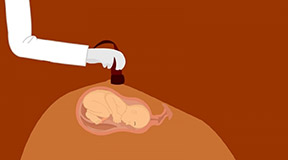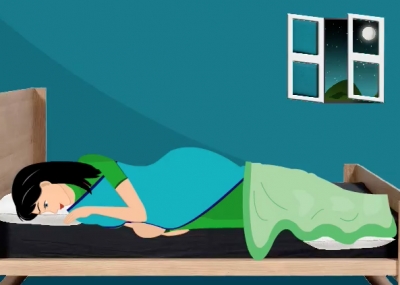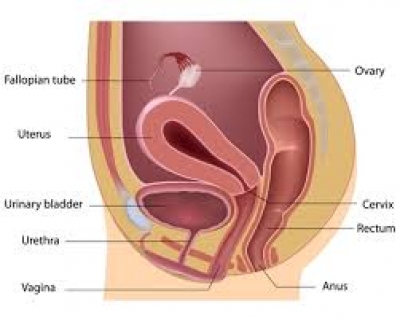Baby is surrounded by amniotic fluid in the uterus. The amniotic fluid provides nourishment and protection to the baby. It contains some cells of the baby. During Amniocentesis, these cells are examined for any chromosomal abnormalities. Your doctor will use a fine needle to take out a small amount of amniotic fluid during this procedure. This test is usually performed between 15 weeks to 18 weeks of pregnancy.
Why is it done?
Your doctor may ask you to get Amniocentesis
- if your age is 35 or older then that as the risk of chromosomal abnormalities increases with the age of the mother
- If you already have a child with birth defect
- if the first-trimester screening test is positive.
- To find out whether or not your baby has a chromosomal disorder, such as Down’s syndrome, and the rarer Patau’s syndrome (Trisomy 13) and Edwards’ syndrome (Trisomy 18)
How is it done?
The doctor uses an ultrasound to see the baby inside and locate the best place for insertion of the needle. The doctor has to make sure to keep the needle at a safe distance from the baby and the placenta during the procedure. A numbing or anesthetic injection is given in the area of the abdomen where the doctor will insert the needle. Looking at the ultrasound the doctor inserts a fine needle into the abdomen, and through that into the uterus and from there into the amniotic sac. A small sample of fluid is taken.The needle is removed and a small bandage is applied over the area. The whole procedure may take 10 to 15 minutes.
It's normal to have a bit of vaginal blood (spotting) for a few hours afterward, and some mild cramps. Try to take rest for a few days.
The cells in the fluid are tested for genetic abnormalities. You may know the results of the test in a few days.






